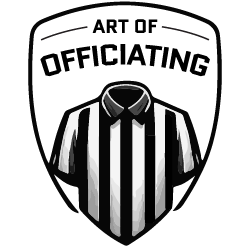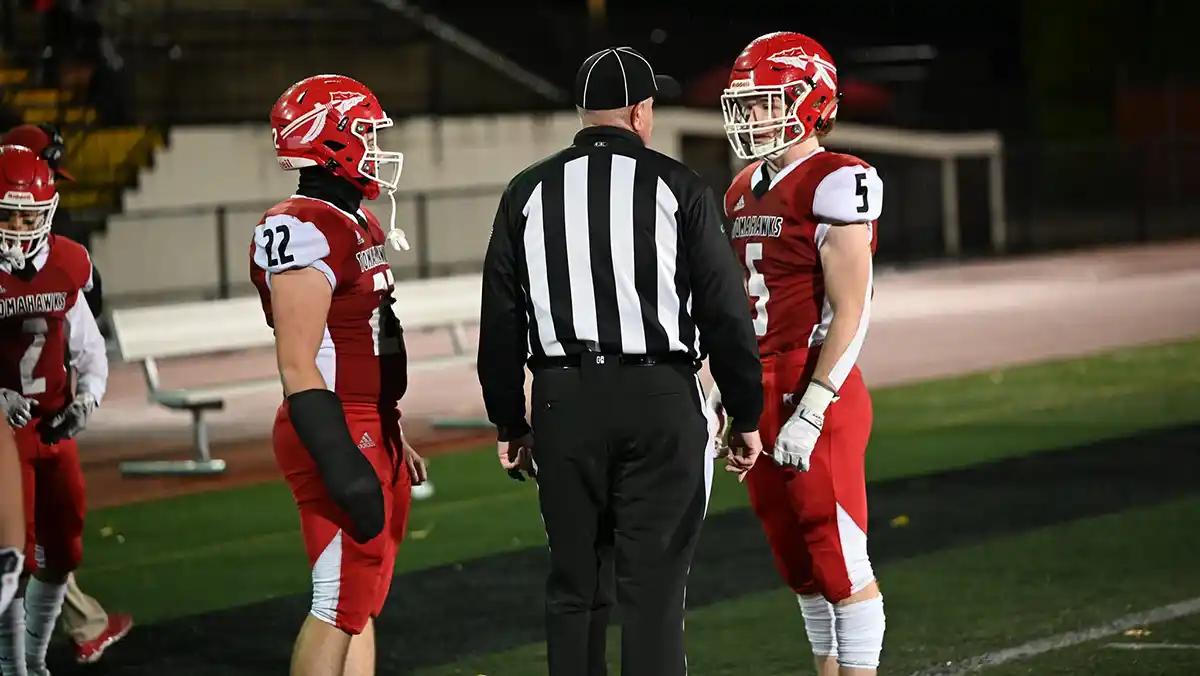Remember, we’re interacting with teenagers on the football field. We can’t expect them to exhibit the same self-control as fully-developed adults. They may not know how to properly resolve conflict. Their coaches yell at them after they get manhandled by their opponent and we expect them to behave like perfect gentlemen?
Give players as much latitude as you can when they interact with you
Don’t adopt a “how dare you!” attitude when they act like teenagers. If their poor behavior is visible to others, then you may have to flag them, but if there is any way you can talk them off the ledge without tossing a flag, take that route.
The players may not take personal responsibility for a mistake
It’s very hard for players to admit mistakes to coaches, so they may blame their deficient performance on poor officiating. It’s not their fault they missed a tackle; it’s your fault because you didn’t flag their opponent for holding.
Promote sportsmanship
Acknowledge a positive act by a player in front of his teammates and relay it to the coach. If a defensive player holds up and doesn’t punish the quarterback after he releases the ball, track him down and let him know you appreciate his behavior.
Don’t coach the players
Some coaches will become indignant if you provide any advice to their players. Let the coaches correct behavior, even at the lowest levels. If a player needs to learn something useful, relay that information through a coach.
Don’t threaten a player by saying, “If you do that again, I’ll flag you.”
Instead, describe the correct behavior to the player (e.g., “That’s close to a hold; keep your arms inside your frame”).
Have fun!
It’s okay to interact with the players as long as you don’t appear inappropriately familiar. We can be positive role models to the players, and positive interaction may mean more to the athlete than we realize.

